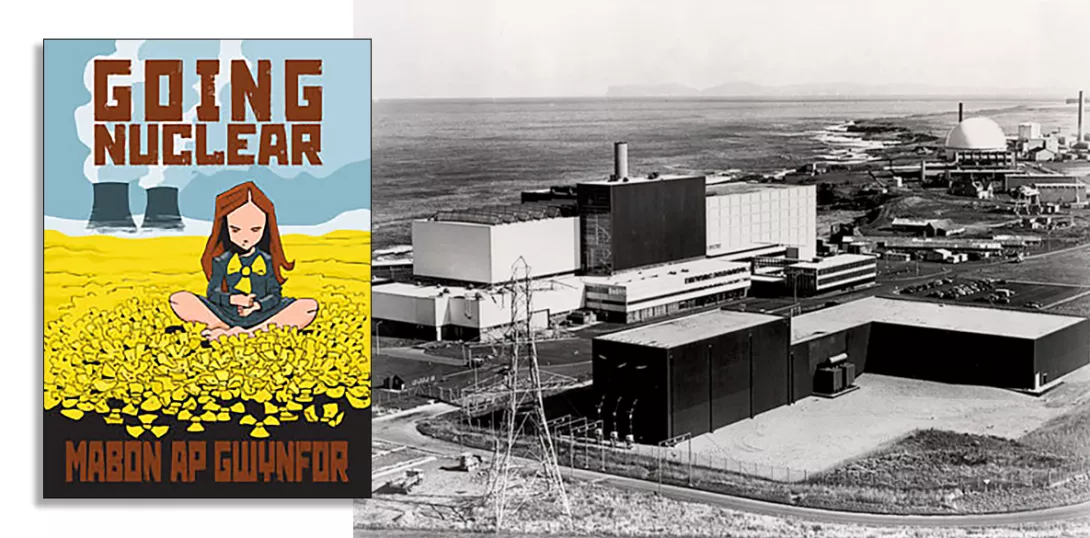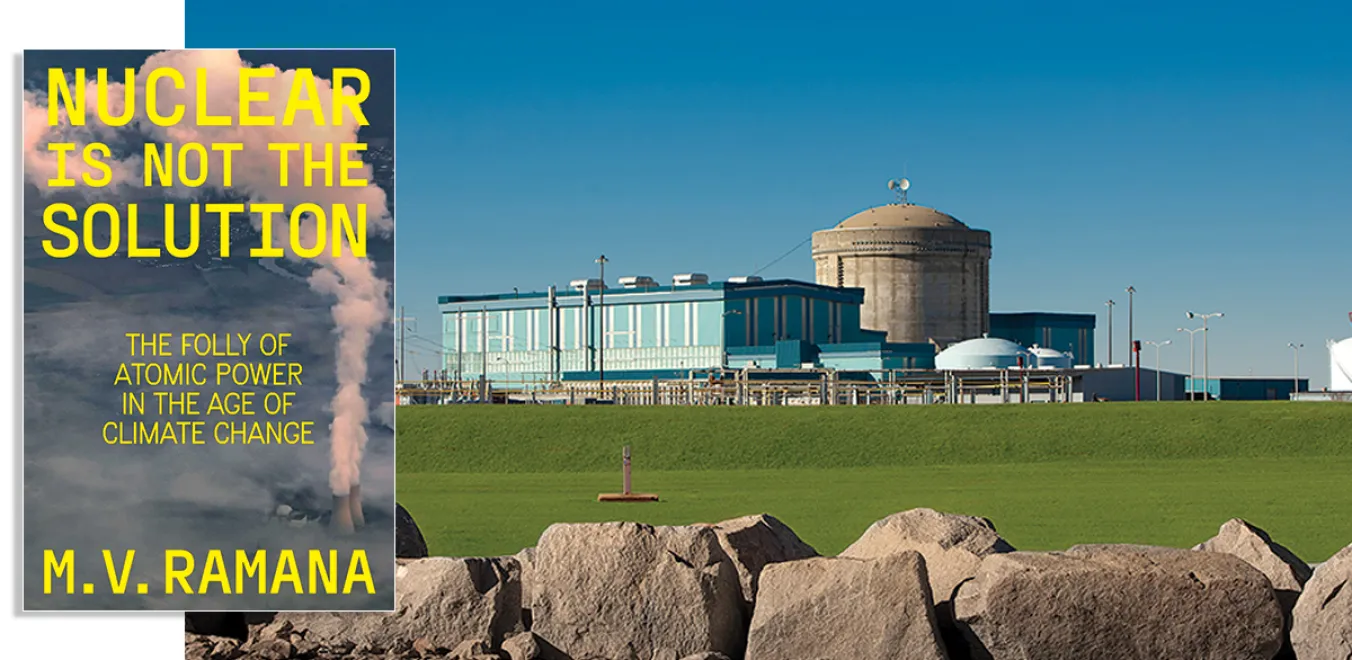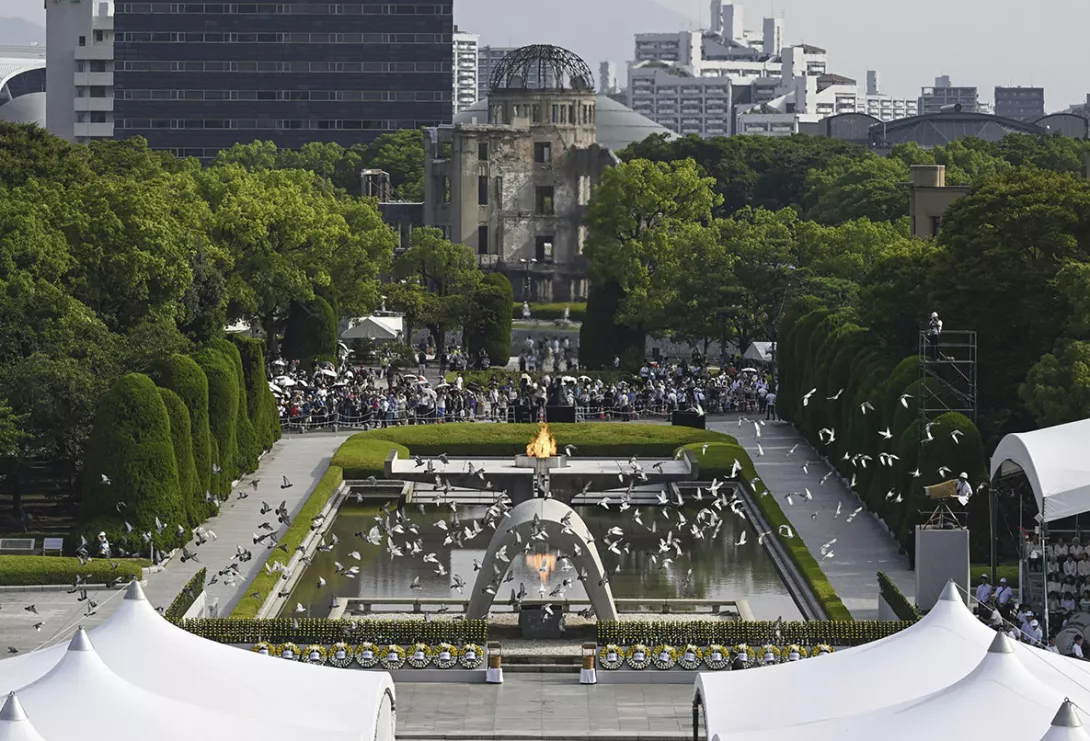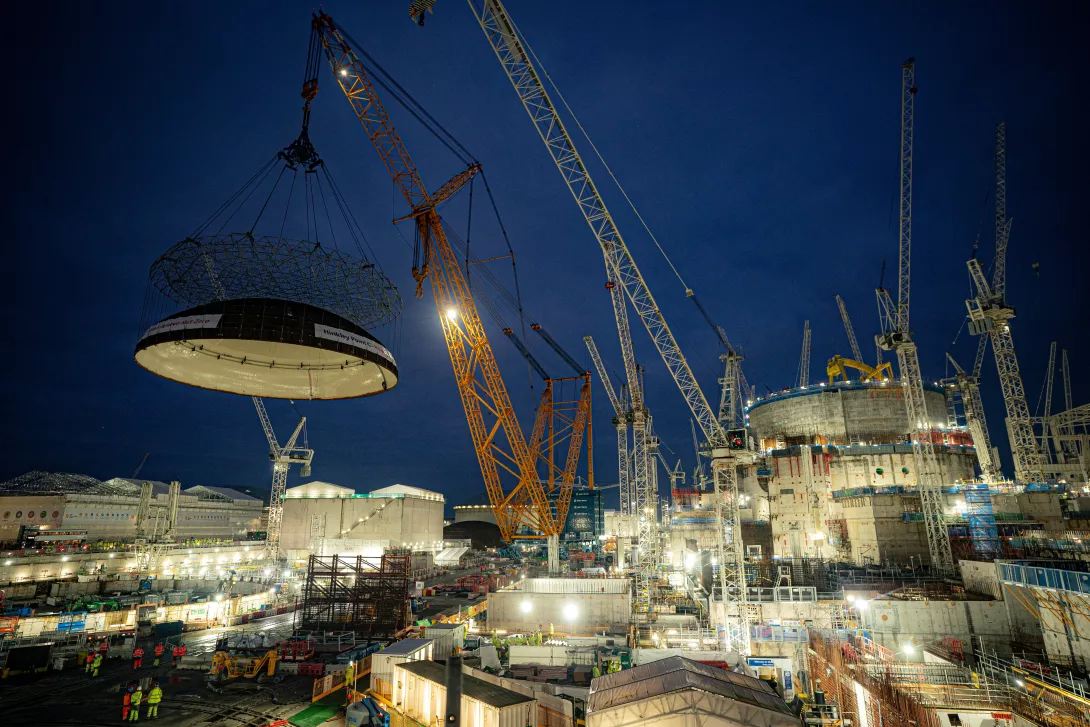
Going Nuclear
Mabon ap Gwynfor, self-published, £13
Going Nuclear by Plaid Cymru’s Senedd Member Mabon ap is a detailed examination of the links between the civil nuclear industry and how it subsidises and sustains Britain’s military nuclear capability.
The author lives in north Wales and is also the newly elected chair of the Campaign for Nuclear Disarmament Cymru.
Curently, in the the world’s difficult journey to net zero, protagonists for nuclear energy argue that we need it in the energy mix for those days when the sun is not shining and the wind refuses to blow.
Ap Gwynfor has set out a detailed and well researched picture of the arguments for and against nuclear energy. In doing so he has also drawn out how the civil nuclear industry is tied to Britain’s nuclear weapons programme and how our ruling elite manage to hide many of the costs of the military programme through the price we pay for energy and the public subsidies given to the civil nuclear industry.
While many of us know what is happening, the author has very usefully scoured official records on our behalf and provides us with factual evidence to equip us with the information we need to persuade others in our campaigning work.
He starts his persuasive journey looking at the destructive capacity of the two nuclear bombs the United States dropped on Japan at the end of World War II. The bomb used on Hiroshima was made from highly-enriched uranium, while the bomb used on Nagasaki was made from plutonium. The fact that the two bombs were made using different processes supports the argument that they were dropped to see which was the most destructive. This was the Hiroshima bomb whose explosive, based on uranium, was the most efficient producing a larger blast and inflicting more damage.
When the UK developed its own bomb, however, it was decided to use plutonium as it was cheaper to produce in a reactor using natural uranium.
In 1956, Britain’s first nuclear power station opened and ap Gwynfor says the government sold the power plant to the public as a means of producing electricity so cheap it would not need to be metered. At the time, it was publicly denied that the plant would be used to produce weapons-grade plutonium.
Of course the government had lied, as the cost of producing nuclear energy was very expensive and it was admitted five years later that the reactor was being used to make plutonium for military use.
Beyond the historical record, ap Gwynfor also considers how the nuclear industry in Britain is developing now and for what purpose. He argues that it is no longer just about producing weapons-grade plutonium, but also the means to propel Britain’s fleet of nuclear submarines that use small modular reactors, developed by Rolls Royce. This is the very technology that is proposed for the latest generation of nuclear power stations in Britain.
Ap Gwynfor argues persuasively that electricity bills are the principal means of subsidising the costs of developing nuclear technology for military use. He explains that without the construction of new nuclear reactors, the unseen funding of military nuclear research disappears and the industry falls apart.
He also turns his forensic eye for detail to the human and environmental cost of mining uranium, and the devastating impact of materials which remain highly radioactive for thousands of years. Among many examples he examines the case of the Marshall Islands in the Pacific Ocean, where radioactive waste was entombed beneath the concrete “Runit Dome” 40 years ago. The materials used are already failing and radioactive sludge is mixing with sea water and, worse still, the rising sea levels threaten to engulf the leaking dome itself.
This is a well-written book that will equip with detail those opposed to Britain’s nuclear deterrent. It will also help those environmental campaigners opposed to nuclear power being in the energy mix, especially when it is presented as an environmentally friendly alternative to help society reduce CO2 emissions.














